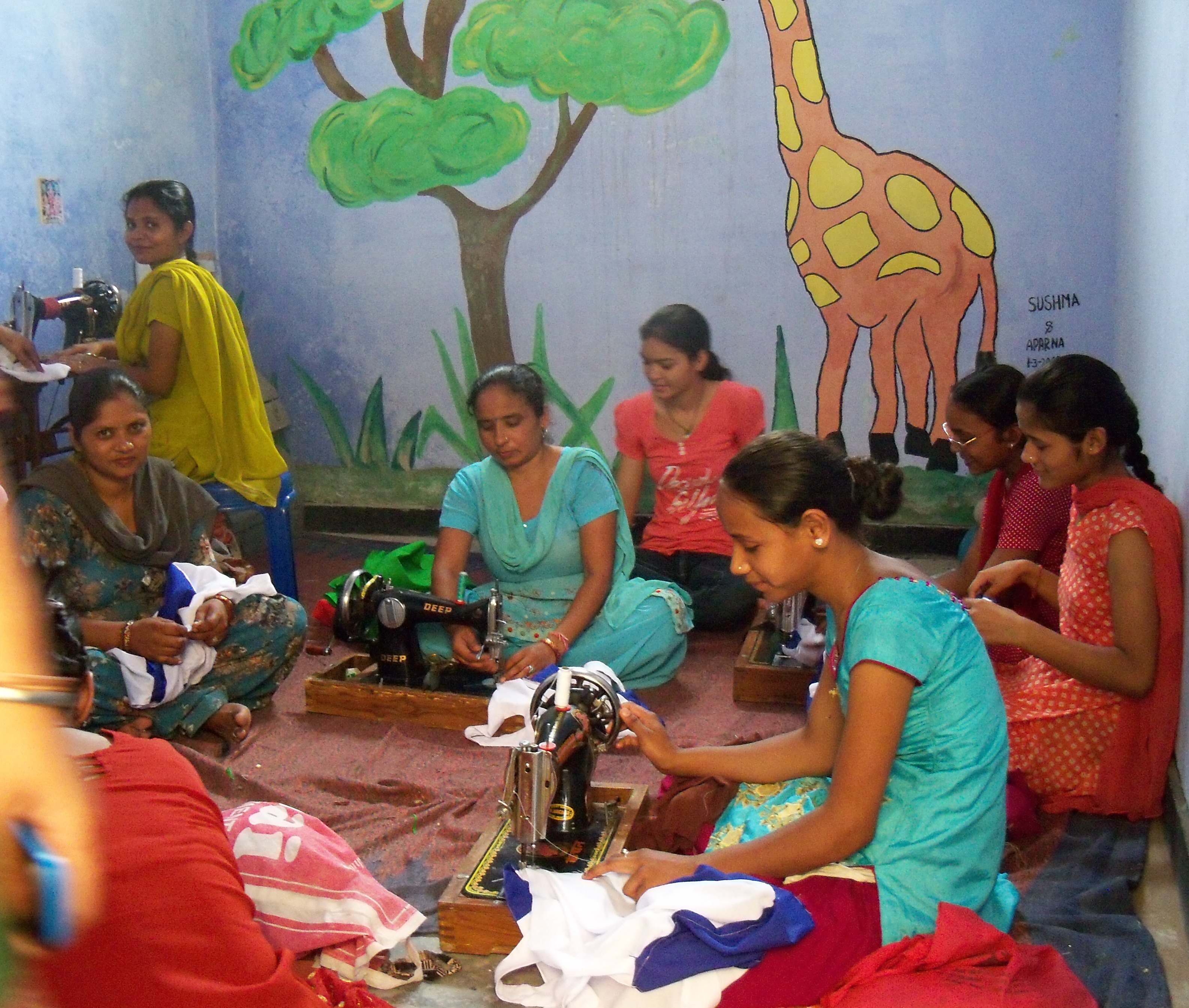Print Edition: June 10, 2011
Image by Sara Bartsch
By Jennifer Colbourne (The Cascade) – Email

Instead of relaxing on the beach or watching the playoffs this summer, third year UFV Human Geography student Sara Bartsch is making a difference far from home. Taken on as an intern by Dr. Frederick Shaw, who runs the non-profit, non-governmental organization Developing Indigenous Resources (DIR) in Chandigarh, India, Bartsch has been working in the slums of Janta Colony and Adarsh Nagar.
As Bartsch explained: “Developing Indigenous Resources works to empower the slums of Janta Colony and Adarsh Nagar by eliminating preventable illnesses and deaths, provid[ing] quality education, and increasing sustainable income generation.” She reported that the organization has “hired health promoters from the community, educated them about basic nutrition and health, and sent them out to spread this information throughout the community,” noting that infant mortality in the area has seriously declined since the advent of the program. “We have also hired qualified teachers from the community to instruct at DIR’s School With a Difference, whose purpose is to prepare young children to attend the better schools,” Bartsch added.
Bartsch works with the DIR’s income generation program, a curriculum that provides women with sewing skills and instructors—and a trade that helps them generate a better income. As she explained: “Previously, they were making paper bags out of newspaper at a rate of 6 [Indian rupees, the equivalent of approximately 0.0223 USD) for 70 bags. Now they are making cloth bags which sell for 5 USD each.” This method of increasing income does still mean workers rely on the support of Canadian and American buyers, so the program has recently tried to start promoting the bags in the area’s shops at a reduced price.
What is striking to Bartsch isn’t so much the extreme poverty found in Chandigarh, but the extreme luxury that exists alongside it. She described: “In the mornings I walk through slums with largely single room homes bordered by narrow dirt roads and open sewers, and in the evenings I visit air conditioned mansions filled with antiques and art. Chandigarh itself is a gorgeous city, planned in self-contained sectors with parks. The slums outside are a stark contrast.”
So far, Bartsch has been having a great experience: “People everywhere are fantastic . . . I have made some great friends both in the wealthy sectors and among the teachers and health promoters in Adarsh Nagar. Despite the much warned-about dangers of India (disease, parasites, theft, etc.) I have felt very safe here. Admittedly it is rather annoying not to be able to go out by myself after 8, but the Indian friends I have made are always willing to accompany me and caution against potential hazards.”
Though not an intern through UFV, Bartsch was introduced to Dr. Shaw thanks to Geography professor Garry Fehr, who has done work in India. In the meantime, Bartsch has also made connections with UFV’s Chandigarh campus, praising in particular Gurneet Anand, who “in his spare time has a hobby of helping out foreign students.” She noted that, “the school seems to be growing fast, and it [is] very cool to see what UFV is doing here with making international connections.” Despite the fact that UFV has not sponsored her as an official intern, Bartsch still feels “this experience will be very beneficial to [her] education and career.”
Bartsch strongly encouraged students at UFV to get involved in supporting DIR. “DIR is doing great work in Chandigarh, and is one of the most honest NGOs I have ever seen. All their money and effort is invested in the people with whom they work.” She suggested that UFV students should “spread awareness about DIR, have a fund raiser for School With a Difference (the tuition is so low it runs at a loss of thousands each year), or volunteer to sell Janta bags to support the women working to learn stitching.” All those who have questions about the project and/or are interested in helping are encouraged to email sara.bartsch@student.ufv.ca or visit DIR’s website at www.dir-help.org.

